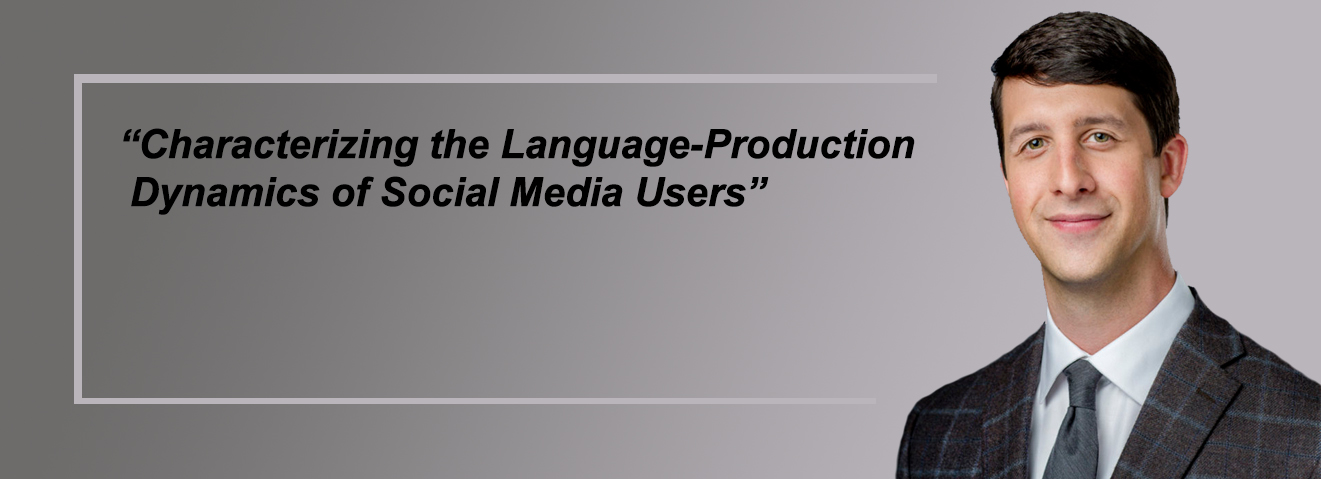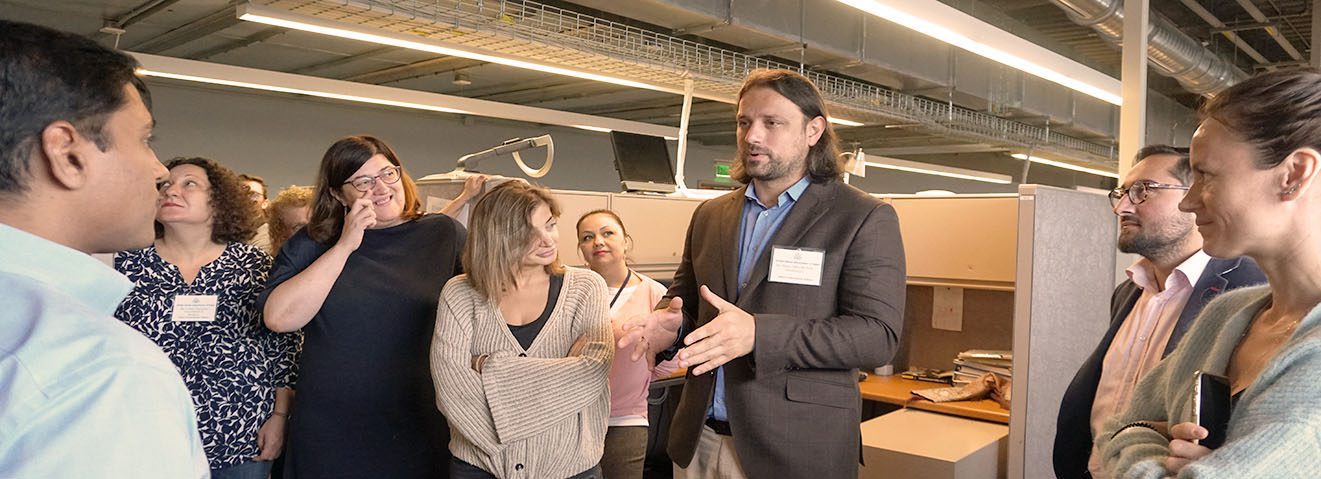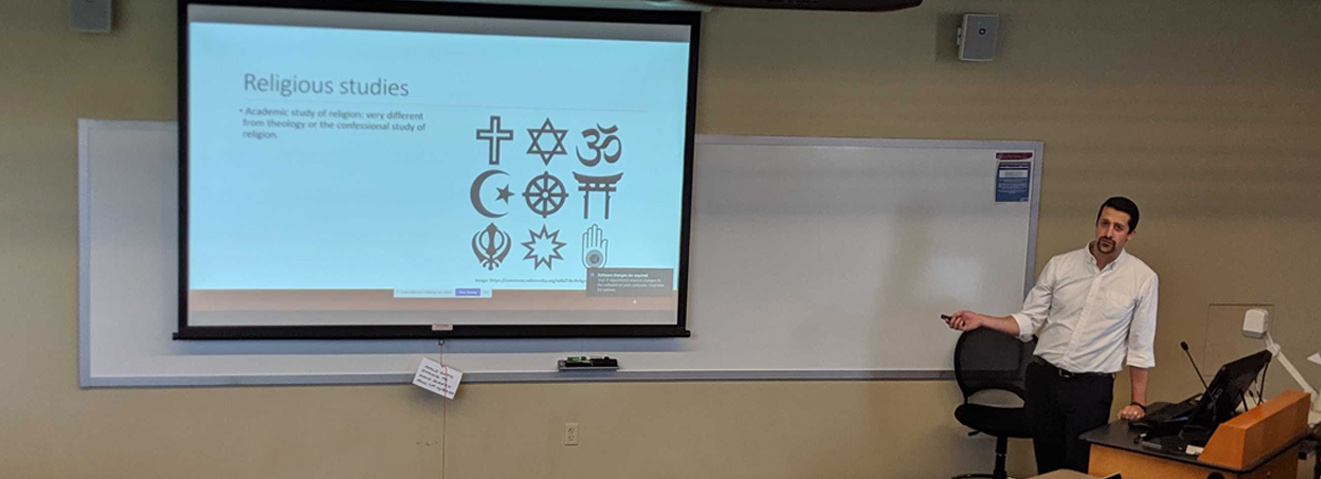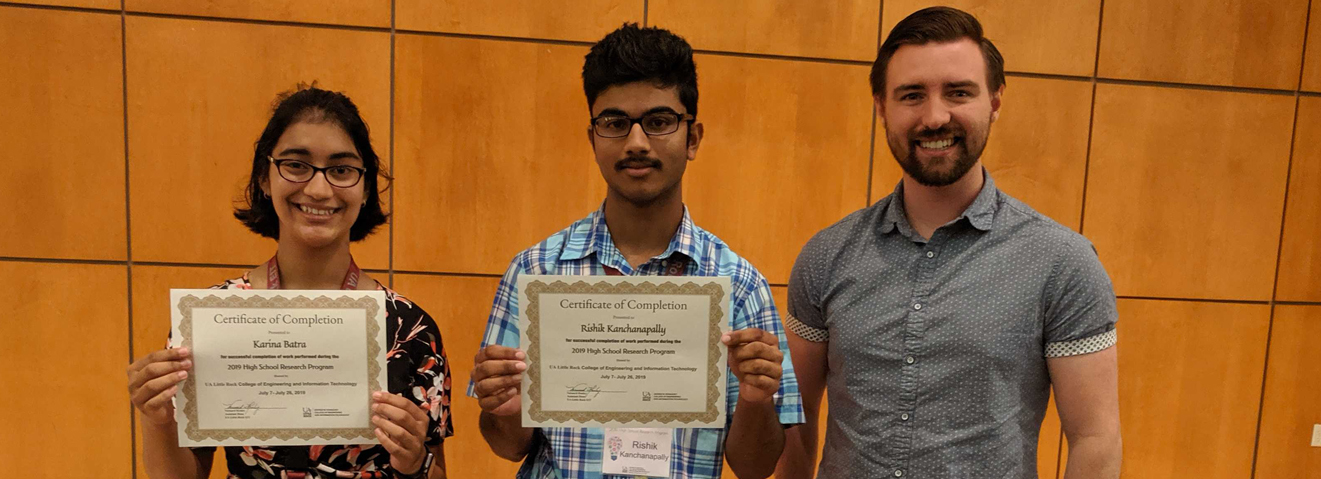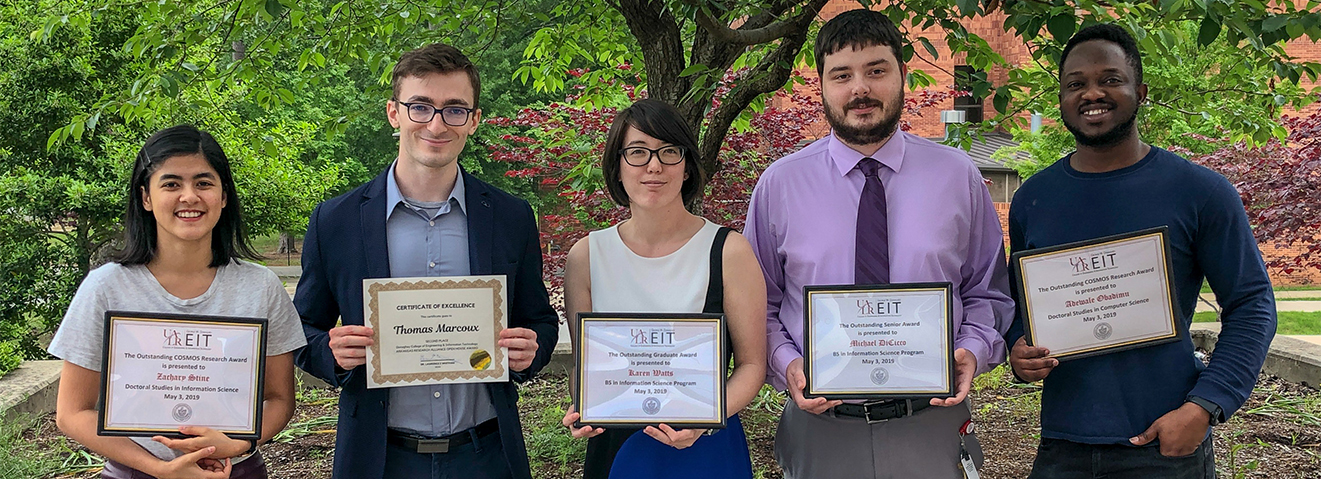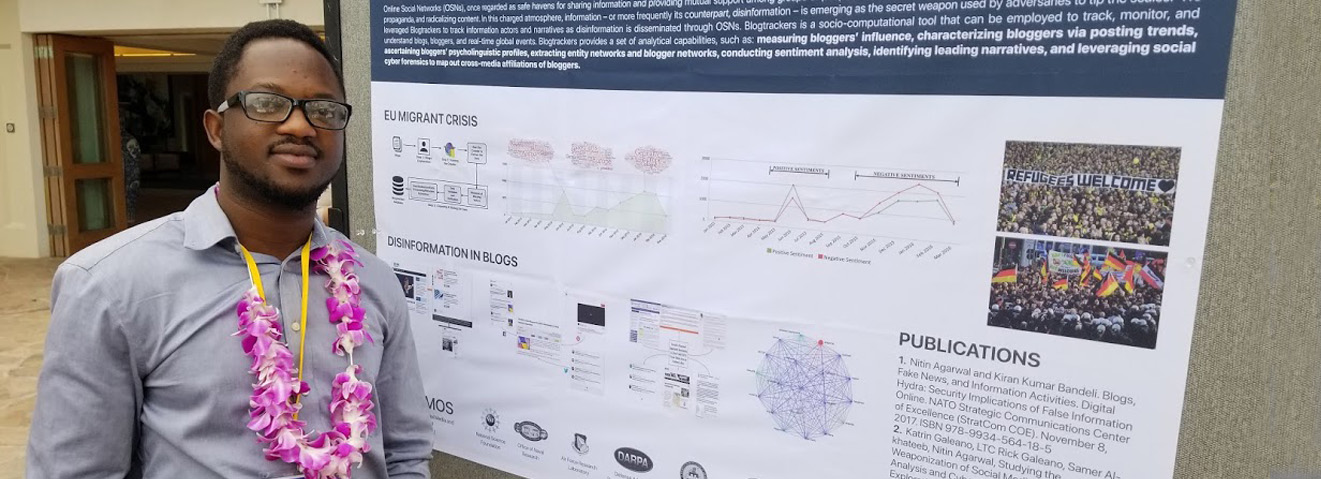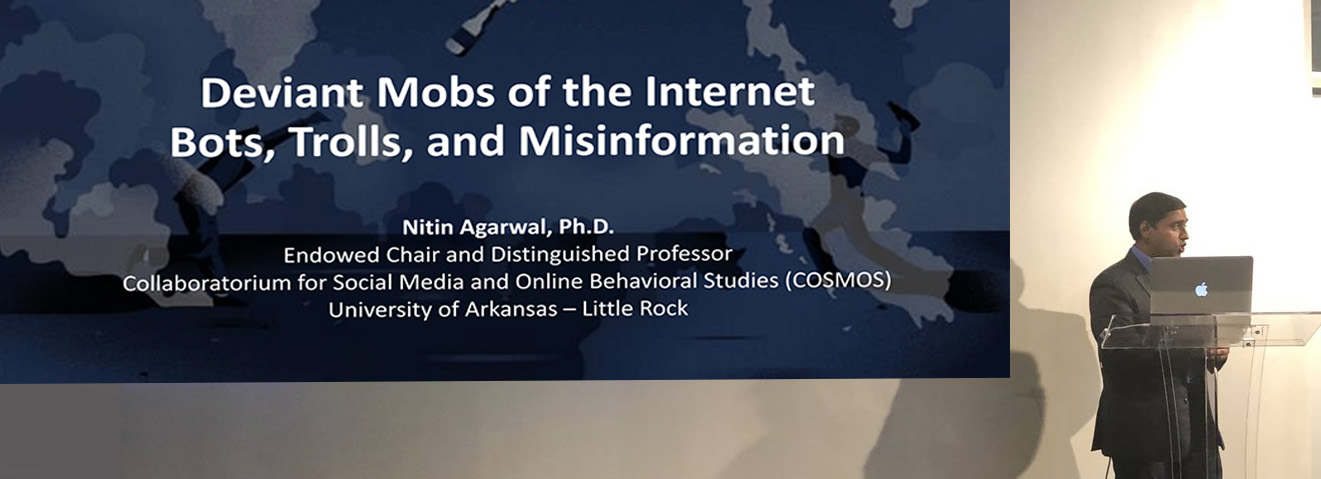Research on Deviant Hacker Networks (DHNs) presented at INFORMS 2019
On October 22, 2019, Dr. Nitin Agarwal presented his research “Exploring Deviant Hacker Networks On Social Media Platforms” during the Artificial Intelligence for Cybersecurity session of The Institute for Operations Research and the Management Sciences (INFORMS) annual meeting in Seattle, WA. The study, co-authored by COSMOS-alumni Dr. Samer Al-khateeb, focuses on malicious activities of hacker groups on social media. The authors call these groups Deviant Hacker Networks (DHNs). To gain a better understanding of DHNs and how they communicate with each other, the authors studied the connection between different DHNs on Twitter. The goal was to identify their key actors: which actors were well-connected, whichRead More →

